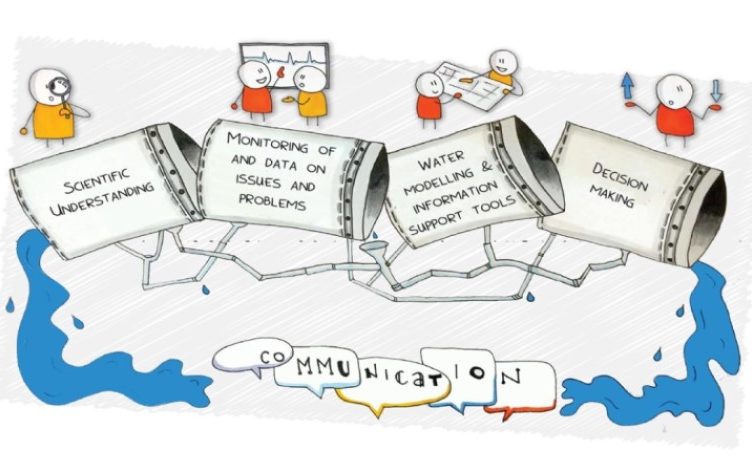
05/12/2024
Event Summary: Overview of water quality modelling projects from the Queensland Water Modelling Network with Callym Dunleavy
Read more
The role of water in landscapes, in daily living, running communities, and in commercial and cultural settings is diverse. Water is a ubiquitous ingredient, and we as professionals certainly do not take it for granted. Indeed the scope of opportunities of jobs and careers are continuing to expand and look very different from what was common in the past. Roles in engineering, science and planning are now being complemented with roles in economic, social behavioural change, natural resource management, cultural, governance and other disciplines that relate to water.
This was the context for an event we held on Monday 15 July, where there was an invitation to early career water professionals who are curious and eager to know the variety of options for stepping through their career.
In the group of participants we had colleagues from Seqwater (Graduate program), Water Technology, AWA mentoring program participants, a large group of post graduate scholars from UQ plus a number of other participants. So, a diverse group!
To navigate the increasing complexity of issues and the ongoing adjustment to what might be the priority issue, the engagement team from the International Water Centre designed this event to consider a number of framework tools to help guide the various small group discussions that happened at this half day workshop.
Even as we got to know each other at the outset, we found that the Water Modelling pipeline we often refer to was an example framework tool as it allows one to better understand who is doing what and who is connected to others.

To help provide a deeper dive into the issues facing the water sector, Johanna Johnson – a sustainable solutions specialist – walked the group through the Circular Economy framework. The presentation was rich in the stories and examples that she undertook in her work at Logan City Council. For example, the ways in which parts of the wastewater stream can be reconsidered as a series of resource harvesting opportunities was fascinating.
The group saw this approach as a useful way to reframe how work can be done, but it also showed that different sets of expertise and skills could also be used.
The second framework presented was Adaptive Planning and the discussion was lead by Richard Savage an experienced water sector environment and planning specialist. This presentation showed that as the complexity and uncertainty builds for some of the issues we are faced with – especially in the water sector – new ways of planning and thinking are needed. As an approach it certainly was a good catalyst and a way for the participants to think not only on the ways they might need to be doing their work – but also on ways that their careers could evolve into the future.
On the day the team was complimented with additional mentors of Melanie Roberts, Chris Mooney, Will Spiers and Simon Costanza and along with Johanna and Richard – 6 small groups were able to explore the frameworks and how they might influence the ways that their own individual careers could be framed and influenced. Many rich discussions.
In conclusion, during the workshop each participant drew up ideas for their own next steps, reflecting on:
Within the three hour session there were many valuable opportunities to workshop ideas and gain insights.
Many thanks to the mentors on the day and our presenting guests Johanna and Richard.